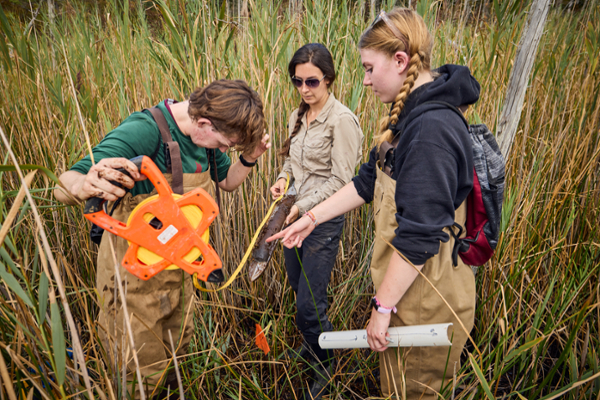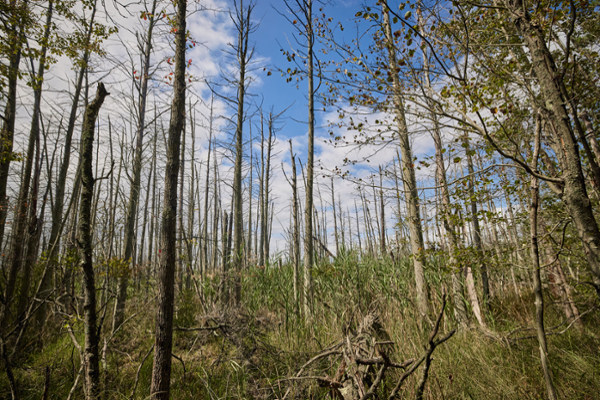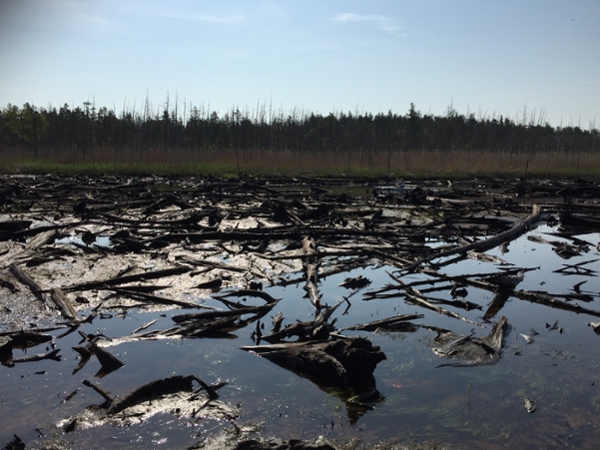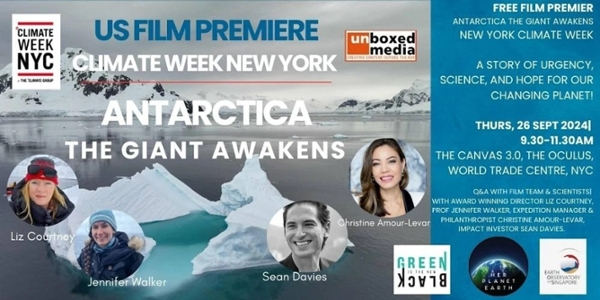Climate Week NYC to include U.S. film launch featuring Rowan researcher
Climate Week NYC to include U.S. film launch featuring Rowan researcher
Climate Week NYC, one of the largest organized efforts to raise awareness about climate change, launches Sept. 22 in Manhattan where a documentary featuring Rowan University researcher Jennifer Walker, Ph.D., will have its U.S. premiere.
Walker, an assistant professor in the Department of Environmental Science in the School of Earth & Environment, was among a team of researchers whose work studying climate change and sea level rise are featured in “Antarctica: The Giant Awakens,” which will screen Sept. 26 at the World Trade Center.
Walker and a small group of climate scientists from Earth Observatory of Singapore visited Antarctica to investigate the pace of the icy continent’s rapidly increasing melt and the implications of it on rising sea levels around the world.
“The purpose of the documentary is talking about the role of Antarctica in sea level rise and in global climate change,” she said. “In thinking about future sea level rise projections, it’s the biggest player.”
Walker said the planet may be nearing a tipping point in which there is so much heat trapping greenhouse gas in the atmosphere that the catastrophic melting of Antarctica’s massive ice sheets is inevitable and irreversible.
But the tipping point may yet be avoided, she said, if people the world over make serious cuts to the amount of greenhouse gases they release into the atmosphere.
“With every year, we can be at or close to the tipping point,” Walker said.
“Ghost forests” – stark evidence of climate change close to home
In New Jersey, Walker studies so-called ghost forests – stands of trees that have died from saltwater intrusion caused by rising seas.
Climate change that began with the spewing of toxins into the atmosphere during the Industrial Revolution continually worsened, resulting in sea level rise around the world, Walker said. Off southern New Jersey, seas have risen an estimated 1.5 feet in the last 100 years.
Along the state’s southern coastline, a clear indicator of the rising seas is the ghostly groupings of Atlantic White Cedar that died from saltwater intrusion but remain standing because their wood is resistant to rot.
“Atlantic White Cedar live in freshwater swamps, near the coasts but not in saltwater,” Walker said.
When the offshore waters they grow in are breeched by saltwater, either from storm surges or infiltrated groundwater, it can be lethal to the trees, she said.
In addition to the trees, an entire ecosystem that they support, from birds and fish to mammals, insects and plants are endangered too, Walker said.
While the stands of Atlantic White Cedar that died from saltwater intrusion cannot be brought back, all is not lost. Trees and forests can migrate over time, Walker said, if they have the right type of land to move to.
Walker said widespread development in the state limits the migration of trees and forests but behavioral changes that reduce the release of greenhouse gases can make a big difference in limiting sea level rise and its numerous, potentially disastrous effects – including the loss of New Jersey’s coastal forests.
Photos: Walker (center) conducts field research this summer with students Sarah Venverloh and Kristian Szymanski; a southern New Jersey ghost forest; poster for "Antarctica: The Giant Awakens."



